Environment - ENA English
Environment
AUC Stresses Need for Climate Action Collaboration in Africa
Apr 1, 2025 292
Addis Ababa, April 1, 2025 (ENA) --- Coordinated continental efforts in climate actions are critical for Africa, Jolly Wasambo, African Union Commission (AUC) Intra-ACP Climate Services and Related Applications Program Coordinator said. According to him, most African countries are engaged in nature-based climate actions. "In Ethiopia, you have got this Green Legacy, a green revolution initiative, where you are planting billions of trees...The Ethiopian green revolution is very critical in order to ensure that we address issues of desertification as well as getting the issues of carbon sequestration," the coordinator stated. Other countries have got also their own initiatives, he noted, adding "why don't we come together as a continent to say, 'this is done in Ethiopia, this is done in Tanzania, this is done in Burkina Faso.'" Wasambo believes that Africans should come together and then try to bring coordination among nations so that they can share in experiences; so that they can also share best practices, and then help one another to do it together. The coordinator further noted that there is the Great Green Wall Framework and Strategy developed by the African Union. "We have now the Great Green Wall Framework and Strategy, which AU has come up with, that is basically aimed at bringing these countries together in that area to ensure that they become sure this will be done as we move ahead." In this regard, reliable and timely climate information is crucial in providing them with information and services which is usable, timely and reliable and that can contribute to social economic development of countries as well as the continent, he elaborated. The African Union Commission is best positioned to coordinate these efforts, Wasambo asserted. "As far as Africa is concerned, AUC is the organization to do this, and it is doing this in various sectors,” he said, stating that it is, for instance, the commission that is bringing together member states in forestry areas and sustainable blue economy management. Furthermore, the coordinator called for a collaborative approach to leverage existing initiatives and innovations like the Green Legacy in Ethiopia and other initiatives. "What is needed most is that as we do this, we have also to open our eyes. What are the other new initiatives, what are the other new innovations?” Under the ClimSA program, he stated that the AUC is focused on enhancing the capacity of member states to generate and utilize reliable climate information. "In order to do that, we need to have reliable and timely climate information upon which our policy makers can base their decisions, as well as the users of that information can use in order to improve their economic development as well as their livelihoods in their various countries.” The program aims to address data gaps by utilizing space-based technologies and providing infrastructure and training to member states. "We need to strengthen the capacities of national metrological and hydrological services, because these are the ones that produce weather and climate information, which every sector can use," Wasambo elaborated. The coordinator pointed out that Integrated African Strategic Meteorology, Weather and Climate Services, was adopted in 2022. The strategy is a blueprint guiding the continent on how it can generate information.
Studies Reveal World's Genetic Diversity of Plants, Forests at Risk
Mar 30, 2025 999
Addis Ababa, March 30, 2025 (ENA)— The genetic diversity of the world’s plants and forests is under threat, new reports published by the Food and Agriculture Organization of the United Nations (FAO) warned. The report stresses that empowering farmers, Indigenous Peoples, local communities and scientists to conserve and use genetic resources is key to resilient agrifood systems. According to the report, this risk is posing a significant risk to global food security and environmental stability, emphasizing the urgent need for conservation efforts to protect genetic resources crucial for sustaining agrifood systems in the face of climate change and biodiversity loss. The Third Report on the State of the World’s Plant Genetic Resources for Food and Agriculture and the Second Report on the State of the World’s Forest Genetic Resources reveal alarming trends, including the disappearance of more than 40 percent of surveyed plant taxa from their natural or cultivated habitats and the endangerment of nearly one-third of tree species. The Growing Threat to Plant Genetic Diversity Plant genetic resources encompass the genetic material of both domesticated and wild plant species that hold value for food, agriculture, and other industries, including medicine and fiber production. These resources are vital for ensuring crop resilience, adapting to environmental changes, and preserving traditional agricultural practices, particularly among Indigenous and small-scale farmers. FAO’s Third Report highlights concerning losses in plant diversity while also noting some progress in conservation efforts. Since 2009, the preservation of plant materials in germplasm collections has increased by eight percent, ensuring that crucial genetic resources remain available for future breeding programs. Additionally, the global seed market has expanded significantly, growing from $36 billion in 2007 to over $50 billion in 2020. Improvements in seed systems, particularly in developing countries, have facilitated farmers’ access to diverse and suitable crop varieties. However, challenges remain, as progress in conservation and sustainable use has been uneven. FAO Director-General QU Dongyu underscored the urgency of these efforts, stating, “Strengthening the conservation and sustainable use of plant genetic resources is not just an agricultural priority – it is a fundamental necessity for ensuring a more sustainable, resilient and food-secure future for all.” Forest Genetic Resources: A Critical But Overlooked Issue The Second Report on the State of the World’s Forest Genetic Resources presents a similarly stark picture for the world’s trees and woody plants. With approximately 58,000 tree species globally, along with 1,600 woody bamboo species and 500 rattans (climbing palms), forests play a crucial role in ecological balance and human livelihoods. Yet, about 30 percent of tree species are now threatened, especially in tropical and subtropical regions. While the availability of information on forest genetic resources has improved over the past decade, the report notes that many species remain inadequately studied, hindering conservation efforts. Around two-thirds of countries maintain national inventories of forest genetic resources, with more than 2,800 tree and woody plant species reported. Of these, nearly 1,800 have been genetically characterized, while approximately 1,400 and 1,100 species are included in in situ (natural habitat) and ex situ (seed banks and botanical gardens) conservation programs, respectively. However, deforestation, climate change, wildfires, pests, and invasive species continue to threaten tree diversity. Although widely distributed tree species retain much of their genetic diversity, rare and threatened species have already lost significant portions of their genetic variation. Moreover, shortages in tree seeds and other reproductive materials pose challenges for reforestation efforts and the global target of increasing forest area by three percent by 2030. Despite the vital role of forest genetic resources in sustainable development, FAO warns that international awareness remains low, necessitating stronger commitments to conservation initiatives. “Investing in forest genetic resources and managing them sustainably will enable the adaptation of the world’s forests to climate change while also increasing productivity and developing new products; it will help safeguard human well-being and maintain forest health,” QU Dongyu stated in the report’s foreword. Urgent Action Needed to Safeguard Genetic Diversity The publication of these reports coincided with the 20th Regular Session of the Commission on Genetic Resources for Food and Agriculture, where governments and non-state actors discussed strategies to protect and promote genetic diversity in agrifood systems. Both reports call for the full implementation of global conservation plans, including the Second Global Plan of Action for Plant Genetic Resources for Food and Agriculture and the Global Plan of Action for the Conservation, Sustainable Use and Development of Forest Genetic Resources. Additionally, strengthening human and institutional capacities, enhancing research, and promoting sustainable management practices are critical to addressing these challenges. With food security, biodiversity, and climate resilience at stake, the FAO urges immediate action to prevent further loss of plant and forest genetic resources. Without decisive measures, the world risks undermining the very foundations of its agrifood systems and natural ecosystems.
Green Legacy Initiative Transforms Ethiopia's Environmental Image, Inspires Regional Change
Mar 28, 2025 1262
Addis Ababa, March 28, 2025 (ENA) --- Ethiopia plans to promote its Green Legacy Initiative (GLI) as a model for regional environmental change, leveraging its positive impacts across Africa through policy measures. GLI Technical Committee Chairman Adefris Worku stated the initiative has significantly improved Ethiopia's environmental image and bolstered climate change mitigation efforts. In an interview with ENA during the celebration of the 14th International Day of Forests in Addis Ababa, under the theme "Forests and Food", he emphasized that the initiative aims to achieve goals including maximizing the country’s national green coverage and raise active participation of the society in the national reforestation campaigns. He emphasized that Ethiopia is making notable progress in recovering and rehabilitating degraded land, with the ultimate aim of transforming it into fertile ground suitable for farming, grazing, the maintenance of healthy watersheds, and forest restoration. The initiative is working toward becoming carbon marketable, positioning it as a viable alternative for job creation in the rapidly growing green economy, he stated. The protection of sustainable forests and natural resources has garnered significant attention from Ethiopia’s top political leadership, Adefris noted, adding that various institutions are collaborating closely to achieve shared objectives, including establishing a greener nation and contributing to environmental sustainability across the African continent. “The agroforestry schemes led by the Green Legacy Initiative have provided valuable opportunities in timber production, wild honey, wild spices, frankincense, myrrh, gum, and have created a market value chain,” Adefris remarked. He also acknowledged the government's substantial efforts to foster collaboration among various ministries, the Ethiopian Forest Development Commission, and other governmental institutions, in partnership with development organizations, which has already yielded successful outcomes. Adefris also pointed out, “ the initiative has not only improved Ethiopia's image but has also provided valuable lessons to international delegates, such as those from Kenya and Saudi Arabia, who have adopted Ethiopia’s best practices. Moreover, Ethiopia has started to influence discussions on climate change and related issues, such as climate finance, desertification, and the development of arid regions.” Having thoroughly assessed the results of the reforestation efforts, he revealed that numerous investors have shown strong interest in Ethiopia’s forestry sector, particularly in commercial forests, with many beginning formal negotiations with government entities. “The Green Legacy Initiative has not only contributed to enhancing food security through initiatives like the ‘Bounty of Basket’ program and agricultural development but has also sparked a transformation in society's attitude toward environmental nationalism, especially among the youth and children,” he underscored. .
Ethiopian Environmental Authority Signs MoU for Building Green HQs and Laboratory Building
Mar 28, 2025 837
Addis Ababa, March 28, 2025 (ENA) --- A Memorandum of Understanding (MoU) signed for designing, consulting, and building consulting a green headquarters and a laboratory for the Ethiopian Environmental Protection Authority. The Ethiopian Environmental Protection Authority, Ethiopian Engineering Corporation, and the Construction Management Institute signed the agreement. The green headquarters and laboratory is expected to enhance the Ethiopian Environmental Protection Authority's monitoring, research, and regulatory opportunities, which are vital for environmental sustainability in the country. The headquarters will also create a modern working environment for the expanding team and improve collaboration in tackling environmental issues. The advanced laboratory facilities would boost the authority's capacity to perform environmental analyses, monitor pollution, evaluate development impacts, and provide essential scientific data for policymaking. Ethiopian Environmental Protection Authority Director-General Lellise Neme said the green headquarters and laboratory will help the authority attain its goals. On his part, Ethiopian Engineering Corporation CEO, Shimelis Eshetu, confirmed that the corporation will utilize its experience in large infrastructure projects for building the headquarters. Construction Management Institute Director-General, Tamrat Mulu, stated that the institute will play a vital role in ensuring the efficient and effective execution of the project. The MoU details the responsibilities of the 3 organizations as they plan and implement the project, which aligns with Ethiopia's commitment to sustainable development and resource management.
Ethiopia Shares Experience on How It Innovatively Addressing Climate Change at Petrsberg Climate Dialogue
Mar 27, 2025 989
Addis Ababa, March 27, 2025 (ENA) --- Ethiopia’s Minister of Planning and Development, Fitsum Assefa has shared country’s successful national innovative and locally available adaptation and mitigation climate actions across the sectors in the 2nd day of the Petrsberg Climate Dialogue 2025. Green Legacy and its success stories are commended in the dialogue which many agreed that it deserves scaling out to other countries. Fitsum presented the secrets of the success of Green Legacy initiative in which Ethiopia covers its land by 23.6 percent in 2023 which enjoyed about 6 percent increment from the 2019 level where the Green Legacy was started. The Minister further stressed the initiative’s outcomes in supporting the lives and livelihood of the local community through the initiative’s systematic inclusion of fruit bearing trees and other agroforestry plant species which helps the farmers to export some of the products such as Avocado. She calls for recognizing such locally fit adaptation best practices with having mitigation co-benefits while also addressing the economic needs of developing countries for a better outcome in effectively responding to climate change globally. The international community needs to step its financial and other means of implementation efforts for those prioritized climate actions and disproportionately affected countries such as Ethiopia. Other countries who are engaging in the Petersberg Climate Dialogue 2025 applauded Ethiopia’s achievements in this regard and agreed to support the initiative for a regional and global impact, according to Ministry of Planning and Development. In the side line of the dialogue, Minister Fitsum met with Assistant Secretary-General Selwin Hart, Special Adviser to the Secretary-General on Climate Action and Just Transition. The two sides agreed to join forces to step up on climate policy planning process including the third generation of the Nationally Determined Contribution (NDC3.0) in which Ethiopia launched a couple of days ago aiming at submitting it ahead of COP30, if possible in September 2025. They also agreed to facilitate the participation of Secretary General Antonio Guterres in the 2nd Africa Climate Summit to be held in September 2025 in Addis Ababa. Similarly, the Minister also met with Pablo Vieira, the Global Director of the NDC Partnership Support Unit and agreed that the NDC Partnership Support Unit will support Ethiopia in developing an implementable NDC3.0 and also to work towards hosting a successful 2nd Africa Climate Summit.
Norway Praises Ethiopia's Green Legacy Results
Mar 22, 2025 2234
Addis Ababa, March 22, 2025 (ENA)— Royal Norwegian Embassy in Addis Ababa has praised the tangible results that Ethiopia has achieved through its Green Legacy Initiative (GLI). The Ethiopian Green Legacy Initiative, launched in 2019, is a large-scale reforestation effort aimed at combating deforestation, restoring degraded landscapes, and enhancing environmental resilience, with a target of planting 50 billion trees by 2026. Live Jacob Sydness, Counsellor, Special Envoy for Climate at the Royal Norwegian Embassy in Addis Ababa, emphasized the GLI as an effective model for other nations during the 14th International Day of Forests celebration in Addis Ababa. During the 14th international Forests and Food event in Addis Ababa, Sydness told ENA that Ethiopia is successfully restoring degraded lands. She emphasized the environmental protection efforts of the Ethiopian government over the past six years that has resulted in visible and tangible changes. "The GLI has brought about a major transformation in Ethiopia’s landscapes and the bilateral agreement between Norway and Ethiopia on environmental protection complements this progress,” she added. Sydness also emphasized that the initiative and the collaboration between Norway and Ethiopia on forestry are closely aligned. "I want to congratulate Ethiopia for the impressive efforts and the results achieved," she remarked. Highlighting Ethiopia's decisive political leadership in implementing the the Green Legacy Initiative, Sydness suggested that it could serve as a model for other nations facing similar challenges. She attributed the initiative’s success to broad stakeholder engagement and praised Ethiopia's dedicated rehabilitation fund for fostering further progress. Sydness also noted Norway's long-standing support for Ethiopia's forest conservation since 2011, emphasizing their collaboration on community afforestation, and forest preservation. According to Sydness, active participation of local forest communities in planning and decision-making is crucial. “Involving local communities is the cornerstone of our bilateral relationship,” she stated. The Special Envoy noted the cooperation of Norway and Ethiopia has also focused on women's land rights, recognizing their vulnerability to forest degradation, stressing the importance of women's central role in conservation efforts, noting the transformative impact on their lives, families, and children.
Kenya Hosts Conference to Mobilize Climate Finance for Africa
Mar 20, 2025 1355
Addis Ababa, March 20, 2025 (POA) ---- Climate change experts convened in the Kenyan capital of Nairobi on Wednesday to discuss ways to bridge the climate finance gap in Africa. The second Climate Change Global Business Summit on Africa was attended by officials from African governments, the United Nations, multilateral financial institutions, and the private sector. Kenya's cabinet secretary in the Ministry of Environment, Climate Change and Forestry, Aden Duale said his country is seeking about 4 billion USD annually for climate change adaptation and another 1.4 billion dollars annually for mitigation until 2030. "This funding is essential to address the impacts of climate change and build a resilient, sustainable future for all Kenyans," Duale said. He said Africa requires the financial support of international organizations, development partners, and the private sector to accelerate the pace of climate action. Malawian Minister of Energy Ibrahim Imedi Matola said the private sector can help Africa bridge the climate finance gap through investments in clean energy and sustainable agriculture. He revealed that climate change adaptation in sub-Saharan Africa is estimated to require 30 to 50 billion USD annually over the next decade, underlining the need for immediate and sustainable financial strategies to mitigate climate risks. Stefano Marguccio, deputy chief executive officer of Sustainable Energy for All, an international green lobby working in partnership with the United Nations, said unlocking Africa's climate investment potential requires innovative financing mechanisms such as debt-for-nature and debt-for-climate swaps. Marguccio noted that Africa also needs transformative policies, including incentives for renewable energy, promotion of public-private partnerships, and regulatory reforms, to attract sustainable investments that will build the region's climate resilience
Dairy Sector Sees Rapid Growth nearly Doubling Milk Production: Ministry of Agriculture
Mar 10, 2025 2661
Addis Ababa, March 10, 2025 (ENA)— Ethiopia's dairy sector has seen transformative growth, with milk production doubling to 12 billion liters and crossbred cattle numbers rising eight fold in three years under the "Bounty of the Basket" (Yelemat Tirufat) initiative. This achievement highlights the country’s ongoing efforts to boost food security, improve smallholder farmers' livelihoods, and drive agricultural productivity, according to the Ministry of Agriculture. Ethiopia's State Minister of Agriculture Fikru Regassa said the significant progress of "Bounty of the Basket", while emphasizing ongoing efforts to address challenges like animal feed shortages and infrastructure development. Since its launch, the initiative has led to substantial growth in dairy production, largely due to targeted crossbreeding programs and improved agricultural practices, which operate across four major agricultural clusters. Most importantly, "Bounty of the Basket" initiative has significantly increased both the number of high-yield dairy animals and overall milk production, the state minister added. According to the state minister, before the launch of the initiative, we can just look at the number of crossbreed animals that we were doing every year. It was about 500,000 animals that were crossed per year. And in the first year of the "Bounty of the Basket", it's 1.2 million animals, which is double. In the second year, we planned 2.4 million, and we succeeded. And this year, the third year of the initiative, we planned 3.8 million animals to be crossbred, and we are now at 2 million. As part of the initiative, Ethiopia’s annual milk production has nearly doubled, climbing from 5.8 billion liters to a projected 12 billion liters, demonstrating the impact of improved breeding techniques, better feed availability, and farmer capacity-building efforts, he elaborated. This surge in production is attributed to better breeding techniques, improved feed availability, and comprehensive capacity-building efforts for farmers. The state minister also emphasized that to sustain this rapid expansion, Ethiopia has invested heavily in infrastructure and technological advancements, pointing that one key development has been the establishment of local liquid nitrogen production facilities, crucial for artificial insemination programs. Ethiopia has acquired five new processing units, with two already operational and three more in the installation phase, ensuring a reliable supply for nationwide crossbreeding activities and by the end of this year, the total number of liquid nitrogen plants will reach 10, he stated. The initiative also aims to strengthen milk processing and distribution. Farmers are being integrated into cooperatives and unions to enhance market participation. Local processing plants have been established to produce dairy products like yogurt, cheese, and butter, while larger-scale processing facilities in cities such as Addis Ababa, Bahir Dar, and Awassa support broader distribution networks. New plants have been set up in strategic locations such as Gondar, Bahir Dar, and Jigjiga, reducing reliance on centralized supply hubs and cutting transportation costs. The state minister noted, “We are ensuring that farmers have access to affordable, high-quality animal feed in all regions, which is crucial for sustaining milk production and supporting the growing population of crossbred cattle.” With increased milk availability, dairy consumption has risen, contributing to the fight against malnutrition and childhood stunting. "Households now have access to nutritious dairy products such as milk and eggs, significantly improving their dietary intake,” he added. Empowering cooperatives and unions is crucial for local producers to drive industry growth," stated the state minister. "We prioritize foreign investment alongside ensuring our farmers have the tools to expand their contributions." The success of the "Bounty of the Basket" (Yelemat Tirufat) initiative is revolutionizing Ethiopia's dairy sector, establishing a robust foundation for sustainable agricultural development. Through strategic partnerships, infrastructure enhancements, and innovative policies, Ethiopia is making significant strides towards food security and economic prosperity, serving as a model for agricultural transformation in Africa, he emphasized. To accelerate dairy sector growth, a high-level workshop convened today at ILRI in Addis Ababa where stakeholders, policymakers, researchers, and private sector leaders collaborated to develop a unified national strategy. ILRI Senior Scientist Gebregziabher Gebreyohanes highlighted the forum's goal was to foster synergies among sector institutions. According to the scientist, this board would provide crucial oversight and strategic direction, ensuring sector stability and expansion. Gebregziabher also emphasized ILRI's ongoing partnership with the government to enhance dairy quality across all indicators.
Ethiopia to Launch Six-month Nationwide Pollution Mitigation Campaign
Mar 8, 2025 2906
Addis Ababa, March 8, 2025 (ENA)—A six-month national pollution prevention campaign will be launched in the near future, Director General of the Ethiopian Environmental Protection Authority (EPA), Lelise Neme announced. Lelise told ENA that protecting the environment requires collective action across all sections of the society. The second anti-pollution campaign will be held under the theme: "Making cleaning and greening Ethiopia a culture", the director general added. The campaign intends to raise public awareness on various environmental pollution types and necessary proactive prevention measures. She emphasized the significance of awareness raising initiatives to empower the public in identifying and preventing pollution. The director general added that both producers and consumers of recyclable plastics should enforce laws on plastic pollution. She stressed the importance of educating all segments of the society and institutions on proper disposal practices for solid and hazardous waste. Expressing the strict enforcement of laws requiring environmental and social impact assessments for all government and private projects, she stated that non-compliance with these regulations will result in legal consequences. According to the director general, future projects will set priorities for community health and environmental safety, Lelise stated.
Ethiopia Committed to Play a Leading Role in Global Wildlife Conservation Efforts
Mar 3, 2025 2619
Addis Ababa, March 3,2025 (ENA) ----Ethiopia has pledged to take a leading role in global wildlife conservation, urging international collaboration for the mutual benefit of wildlife and communities, according to the Ethiopian Wildlife Conservation Authority (EWCA) . EWCA marked World Wildlife Day and its 60th anniversary with events, including a tour at the Gullele Botanic Garden, showcasing its diverse endemic species. The day featured a tour of the Gullele Botanic Garden, home to a wide variety of flora and fauna, including several endemic species from both plant and animal kingdoms. Following the tour, a discussion was held on the importance of conservation. The observance took place under the theme "Wildlife Conservation Finance: Investing in People and Planet," which highlighted the critical connection between ecosystem health and community well-being. Kumara Wakijira, EWCA Director General, emphasized the significance of the day in raising awareness about wildlife conservation. He acknowledged that while Ethiopia has made notable progress in preserving its wildlife resources, additional investment is necessary to tackle the increasing pressures on ecosystems and biodiversity. “The future of Ethiopia’s wildlife, and the health of our planet, depends on our collective ability to finance sustainable conservation efforts that can withstand the challenges of the coming decades,” said Kumara. He also pointed out that securing adequate financing remains one of the main challenges in wildlife conservation. To address this, he noted that EWCA is working closely with both local and international partners to ensure sustainable financial support for these efforts. Tourism State Minister Endegena Abebe, in his remarks, stated that wildlife conservation is inseparable from economic development and cultural diversity. "It is our duty to safeguard these treasures, not just for their intrinsic value but for the countless opportunities they offer for sustainable development," he said. Endegena called for collective action from both local and international partners to support the conservation of Ethiopia’s ecosystems and wildlife. The event aimed to explore how Ethiopia, in collaboration with the global community, can enhance financing for wildlife conservation. It focused on innovative solutions that balance the conservation of wildlife with sustainable development. The celebration also underscored the need for a unified effort from government institutions, businesses, financial institutions, local communities, and individuals to increase investment in wildlife conservation. The observance of World Wildlife Day 2025 in Ethiopia was also described as a rallying cry for a global effort to secure a future where nature and humanity can thrive together.
Vultures Provide Ecosystem Services worth 1.8 Billion USD Annually in Southern Africa: Report
Feb 26, 2025 2712
Addis Ababa, February 26, 2025 (ENA)---The ecosystem services provided by vultures in the southern African region, including sanitation and pest control, are estimated at 1.8 billion USD annually, according to a report launched in the Kenyan capital of Nairobi on Tuesday. Compiled by BirdLife International, a conservation lobby, the report focuses on Botswana, Zimbabwe and Zambia, emphasizing the role of vultures in maintaining ecological balance and promoting human health. The African continent is home to 11 species of vultures, with seven facing the risk of extinction and listed as vulnerable, endangered, or critically endangered on the International Union for Conservation of Nature's Red List of Threatened Species, according to the report. Africa's vulture population, says the report, plummeted by 80 to 97 percent over the last five decades, and the main threats facing these majestic birds include poisoning and electrocution, Xinhua reported. The report decries the widespread poisoning of vultures in southern Africa linked to cultural beliefs, with habitat destruction, climate change, and electrocution by high-voltage transmission lines threatening their survival. In 2019, mass poisoning led to the death of 500 critically endangered vultures in Botswana, the report notes, emphasizing that the iconic birds play a vital role in boosting tourism in the southern African region. The report warns that failure to protect vultures could lead to about 47 million USD losses to the region's economy annually, while conservation efforts could generate an estimated 30 million USD every year. Head of conservation in Africa at BirdLife International, Matthew Lewis said the decline of vultures on the continent is concerning. He emphasized the urgent need for key actors to step up their conservation efforts in the natural habitats and accrue myriad economic, health and ecological benefits for communities. "This groundbreaking study on the economic value of vultures in the southern African region is crucial in advancing conservation efforts," Lewis said. Preventing extinctions program manager at BirdLife Zimbabwe, a non-profit organization dedicated to the conservation of indigenous bird species, Leeroy Moyo underscored the importance of policy advocacy, community-focused awareness campaigns, and innovative conservation strategies to secure a sustainable future for vultures.
Private Sector Crucial in Building Climate-Resilient Economy, Says Planning & Dev’t Minister
Feb 22, 2025 2738
Addis Ababa, February 22, 2025 (ENA)—Minister of Planning and Development, Fitsum Assefa underscored the essential role of private sector partnerships in fostering a climate-resilient economy in Ethiopia. At a consultation forum held yesterday, Minister Fitsum further emphasized the critical contribution of the private sector in addressing climate-induced impacts and promoting green development. The Minister outlined Ethiopia’s commitment to building a climate-resilient green economy, noting that the Ten-Year Master Development Plan serves as a key framework. She highlighted that various climate strategies are embedded in the country’s sectoral development plans and programs. Ethiopia has ratified the Paris Agreement and formulated a climate change response plan that outlines actions through 2050. The plan aims to reduce greenhouse gas emissions by 68.8 percent by 2030. However, the minister acknowledged that private sector engagement has been limited due to a lack of supportive enabling environments in the past. "To address this, my ministry has created a working group focused on improving coordination and strengthening partnerships. Our ongoing efforts are centered on climate finance to maximize national benefits," she explained. Global Green Growth Institute (GGGI) Country Representative to Ethiopia, Okechukwu Daniel Ogbonnaya commended the Ethiopian government's progress in mitigating the impacts of climate change. He called for stronger collaboration between the government, private sector, and international institutions to implement climate-resilient projects. He also pledged to further extend support for Ethiopia’s climate initiatives. Secretary General of the Ethiopian Chamber of Commerce and Industry, Kenenisa Lemi reiterated the government’s commitment to helping the private sector align with climate change mitigation efforts. He emphasized the importance of investments that promote both economic growth and environmental sustainability. The secretory general also highlighted the crucial role of climate finance in the country’s climate action endeavors to meet its goals. Deputy Director General of Mekobu Enterprise, Sabile Mekonnen, an agricultural technology provider, and the Manager of Abra Amba Technology, a solar technology provider, both emphasized the importance of stakeholder coordination in addressing climate change. They highlighted the role of the workshop in fostering collaborative efforts with the ministry to tackle climate change effectively.
Carbon Market Strategy to Position Nation Achieve Low-Emission Energy Development Goals
Feb 5, 2025 4612
Addis Ababa, February 5, 2025 (ENA) - Ministry of Planning and Development has confirmed that the National Carbon Market Strategy (NCMS) would position Ethiopia for achieving long-term low-emission energy development goals. International and local stakeholders held a consultation meeting that aimed to provide an update on the strategy’s progress, presenting a zero draft of the NCMS, which outlines its objectives, scope, and significance for relevant sectors and stakeholders. Speaking at a meeting on the development of Ethiopia’s NCMS, State Minister of Planning and Development Seyoum Mekonen highlighted that the strategy will position the country to meet its goals. The State Minister emphasized that NCMS would play a pivotal role in enabling Ethiopia to meet its long-term low-emission energy development targets. He noted that the strategy is designed to guide Ethiopia's effective participation in both international and domestic carbon markets, in line with Article 6 of the Paris Agreement. It will build upon existing initiatives, including the Green Legacy Initiative, the Nationally Determined Contributions, the 10-Year Program for Development, and the Climate-Resilient Green Economy Strategy. It will also align with sectoral policies such as those for non-motorized transport, electrification programs, biogas, clean cooking, and irrigation. Furthermore, the strategy will draw on Ethiopia’s experience with carbon market mechanisms, including the Clean Development Mechanism, voluntary carbon market programs, and bilateral cooperation under the Joint Crediting Mechanism. According to the state minister, these combined efforts will position Ethiopia to achieve its Long-Term Low-Emission Development Strategy targets. The meeting also aimed to raise awareness and foster understanding among participants about the opportunities and challenges of participating in global carbon markets and focus was placed on Article 6 mechanisms of the Paris Agreement and their potential benefits for Ethiopia. The session further emphasized the need for collaboration among key stakeholders, led by the Ministry of Planning and Development, in partnership with other relevant ministries and experts, to ensure a broad and inclusive approach to the strategy’s development. Urban Benywanira, an expert on Article 6 and carbon pricing from the United Nations Framework Convention on Climate Change Regional Collaboration Centre for East and Southern Africa, on his part praised Ethiopia's efforts in developing the NCMS. He described the initiative as timely and a positive step forward. Benywanira expressed hope that once the strategy is finalized and adopted, Ethiopia will be able to guide entities wishing to participate in Article 6 mechanisms, with a particular focus on institutional arrangements. Stephan Noch, Managing Director of Perspectives Climate Group, also shared insights during the consultation. His firm, which specializes in international climate policy and finance, has been working in Ethiopia for 15 years, helping to define the country's national targets for the Paris Agreement and mobilizing finance for solar water pumping projects. Noch also highlighted that Perspectives Climate Group is supporting the Ministry of Planning and Development in structuring the national carbon market, with support from the UN Climate Secretariat.
Africa Poised to Lead Global Green Industrialization with Green Hydrogen Dev’t
Jan 25, 2025 5403
Addis Ababa, January 25, 2025 (ENA)—Africa is set to lead in global green hydrogen development with 41 projects expected to enter development over the next five years. According to a new report published by the Energy Industries Council (EIC), Africa is set to become a key player in the global green hydrogen market. However, the EIC, the world-leading trade association and purveyor of data, insights, and events, warns that despite its promise, the hydrogen sector in Africa faces serious challenges. The bottlenecks in this sphere include securing offtake agreements, establishing regulatory frameworks, and building robust infrastructure. The Africa OPEX Report 2025 reveals that North African countries are leading the efforts, with their abundance of year-round sunshine providing ample opportunities for investments in green hydrogen production and export infrastructure. The report – written by Aqilah Shahruddin, an EIC analyst for operational assets and decommissioning – provides a comprehensive analysis of Africa’s energy sector, covering renewable energy projects, carbon capture, energy storage, and traditional energy sectors such as oil, gas, and thermal power. Africa offers fertile ground for scaling the production of green hydrogen, produced using renewable energy sources like solar and wind, as it continues to leverage its abundant resources and low production costs. According to the report, 41 hydrogen projects are expected to enter development between now and 2030. Sub-Saharan Africa is also developing green hydrogen capabilities, with countries like Namibia leading with large-scale projects. Despite the massive potential, the report identifies several challenges that need to be addressed to fully realize Africa’s green hydrogen ambitions, including the need for major infrastructure investments — such as pipelines, ports, and export facilities — and the development of clear policy frameworks and regulatory support to attract investments. The upfront costs of green hydrogen projects call for international cooperation and financing initiatives, the report said. Europe’s REPowerEU Plan, designed to reduce the continent’s dependence on Russian gas and which aims to import 10 million tonnes of green hydrogen every year from Africa, is a sign that efforts are already in place. However, the report notes that more targeted funding and collaboration will be key to scaling up hydrogen production in Africa. Rebecca Groundwater, EIC’s Head of External Affairs, emphasizes the importance of global market exploration for supply chain companies, including Africa. She highlights the need for supportive regulatory and financing conditions to unlock Africa’s hydrogen and cleantech potential, advocating for international collaboration to address limited capital and open new financing channels. The green hydrogen sector is closely tied to Africa’s broader renewable energy growth. The report notes that 61.1 GW of renewable energy capacity is currently operational across the continent, with significant investments in solar and wind projects. South Africa leads in solar capacity, with 59 operational solar farms, it was indicated. But the report says that Africa will need to invest in power storage in tandem with production. Africa’s energy storage capacity has grown from 180 MW in 1979 to 4.2 GW in 2023, with South Africa contributing 3.6 GW. The sector, however, faces significant challenges due to a lack of clear regulations.
IGAD Stresses Need for Importance of Accurate Climate information in Decision-Making
Jan 22, 2025 5294
Addis Ababa, January 22, 2025 (ENA)— IGAD Deputy Executive Secretary Mohamed Abdi Ware, remarked at the official release of ICPAC’s seasonal climate forecast for March to May (MAM) 2025, that accurate climate information is extremely important in decision-making. The Intergovernmental Authority on Development (IGAD) Climate Prediction and Applications Centre (ICPAC) has officially released the seasonal climate forecast for March to May (MAM) 2025 on Tuseday, predicting below-normal rainfall across much of the Greater Horn of Africa. The forecast was unveiled at the 69th Greater Horn of Africa Climate Outlook Forum (GHACOF69), held in Addis Ababa, Ethiopia, highlighting the urgent need for anticipatory action and planning by policymakers and local communities. The March to May season is a crucial period for the equatorial regions of the Greater Horn of Africa, contributing up to 60 percent of annual rainfall in many areas. However, the latest forecast indicates a high likelihood of below-average rainfall in Somalia, eastern and northern Kenya, southern and northeastern Ethiopia, Djibouti, coastal Eritrea, western South Sudan, southern and western Uganda, Rwanda, Burundi, and northwestern Tanzania. Wetter-than-normal conditions are expected in parts of Tanzania, eastern Uganda, and western Ethiopia. IGAD Deputy Executive Secretary Mohamed Abdi Ware stressed the importance of accurate climate information in decision-making. "It is essential to provide timely and actionable information to policymakers, enabling them to make anticipatory decisions that will have a meaningful impact on people's lives in the face of climate uncertainty," he said. Dr. Abdi Fidar, Officer-in-Charge at ICPAC, emphasized the need for effective communication, particularly with farmers and pastoral communities. "This information must be disseminated widely, especially to subsistence farmers and pastoralists, so they can make informed decisions about their livelihoods." Fetene Teshome, Director General of the Ethiopian Meteorological Institute (EMI), underscored the role of GHACOF in bringing together climate scientists and user communities to assess past trends and future predictions. "GHACOF 69 provides a platform for climate experts and stakeholders from key sectors to collaborate on climate risk management," he said. The seasonal outlook also suggests that temperatures will likely be warmer than normal across much of the region, with the highest probabilities in Sudan, Ethiopia, Eritrea, Djibouti, and northern Somalia. These elevated temperatures, combined with below-normal rainfall, are expected to have significant impacts on agriculture, water resources, and public health. Stakeholders are urged to take proactive measures to mitigate the potential impacts of the anticipated drought conditions, particularly for vulnerable populations such as women, children, the elderly, and persons with disabilities. Dr. Fidar reiterated the importance of regional cooperation, stating that platforms like GHACOF are vital for building a shared understanding of climate risks and fostering collective action. In closing, Mohamed Abdi Ware highlighted the need for holistic approaches to address the interconnected challenges of climate change and conflict. "Collaboration is key to ensuring a resilient and sustainable future for all," he emphasized. The GHACOF69 forum, held from January 20-21, 2025, brought together national meteorological and hydrological services, development partners, and stakeholders to discuss strategies for enhancing climate resilience in the region.
Most Parts of Greater Horn Africa Expected to Receive Below-Normal Rainfall, ICPAC Predicts
Jan 21, 2025 5112
Addis Ababa, January 20, 2025 (ENA) ---- The IGAD Climate Prediction and Applications Centre (ICPAC) has released its seasonal climate forecast for March to May (MAM) 2025, indicating that most parts of the Greater Horn of Africa are likely to experience below-normal rainfall. The forecast is particularly significant as the MAM season contributes up to 60 percent of the annual rainfall in many areas of the region, making it a crucial period for agricultural and water resources. According to ICPAC, much of Somalia, eastern and northern Kenya, southern and north-eastern Ethiopia, Djibouti, coastal Eritrea, western South Sudan, southern and western Uganda, Rwanda, Burundi, and north-western Tanzania are expected to receive below-average rainfall. Additionally, the cross-border areas of Ethiopia-Kenya-Somalia, north-eastern Ethiopia, southern Eritrea, and parts of south-western South Sudan have an enhanced likelihood of below-normal conditions. While the majority of the region is expected to experience dry conditions, wetter-than-normal conditions are anticipated in most parts of Tanzania, eastern Uganda, eastern South Sudan, and western Ethiopia. Furthermore, there is a high probability that seasonal rainfall will exceed 200 mm in south-western Ethiopia, western Kenya, Uganda, Rwanda, Burundi, and Tanzania. In terms of temperature, the forecast suggests a higher likelihood of warmer-than-normal conditions across most parts of the Greater Horn of Africa, with Sudan, Ethiopia, Eritrea, Djibouti, northern Somalia, and northern Kenya facing the highest probabilities of experiencing elevated temperatures. The onset of rainfall is expected to be early to normal in most parts of the region, except for localized areas in central Kenya, southern Ethiopia, and central Somalia, where a delayed start is likely. The projected climatic conditions are likely to have significant socio-economic impacts, particularly on vulnerable populations, with women, children, older persons, and persons with disabilities expected to be the most affected. ICPAC has called upon governments and stakeholders to take proactive measures to mitigate the anticipated adverse effects and ensure that the most at-risk communities are adequately supported. Dr. Abdi Fidar, the Officer-in-Charge at ICPAC, noted that “As the IGAD region faces increasing climate variability and extremes—droughts, floods, and rising temperatures—platforms like GHACOFs are essential for building a shared understanding of risks and fostering collaboration to mitigate their impacts.” “The theme of this forum, Climate Services for Closing the Early Warning Gap Together, underscores the critical role of actionable, timely, and accurate climate information in bridging gaps in preparedness and response,” he added.
Integrating Climate Services into National Policies, Sectoral Strategies Vital Across IGAD Region
Jan 20, 2025 4139
Addis Ababa, January 20, 2025 (ENA) ---- Officer in Charge of IGAD’s Climate Prediction and Applications Centre (ICPAC) Dr. Abdi Fidar, has stressed the importance of integrating climate services into national policies and sectoral strategies such as agriculture, water, energy, health, and disaster risk reduction. Speaking at the opening of the 69th Greater Horn of Africa Climate Outlook Forum (GHACOF 69), Dr. Abdi Fidar, highlighted the region's vulnerability to climate change, referencing recent extreme weather events such as cyclones, heatwaves, and desert locust invasions. He has emphasized the importance of early warning information, such as seasonal forecasts, for regional planning and decision-making. He stressed the importance of integrating climate services into national policies and sectoral strategies such as agriculture, water, energy, health, and disaster risk reduction. He noted IGAD's pivotal role in coordinating climate adaptation actions across borders and emphasized the importance of integrating climate services into national policies and regional frameworks. The meeting organized by ICPAC in collaboration with partners, this crucial forum serves as a platform for regional climate analysis and early warning dissemination. GHACOF 69 brings together a diverse group of stakeholders, including climate scientists, policymakers, development partners, and representatives from various sectors, to assess past climate conditions, discuss the anticipated climate outlook for the upcoming season, and develop strategies to enhance climate resilience across the Greater Horn of Africa region. Ethiopia is ramping up efforts to enhance climate services to address the growing challenges posed by climate variability and climate change, Ethiopian Meteorological Institute (EMI), Director General, Fetene Teshome said. He emphasized the importance of reliable climate information to minimize risks and optimize opportunities for various economic sectors. Fetene highlighted the Ethiopian government's commitment to strengthening EMI by expanding outreach, enhancing capacity, and investing in state-of-the-art meteorological technology. "The Government of Ethiopia is dedicated to equipping EMI with modern meteorological systems, capacitating national and regional staff, and fostering collaboration with international partners such as ICPAC to minimize climate risks," he stated. Representing the Minister of Water and Energy, Motuma Mekassa said IGAD's work in coming up with initiatives geared towards mitigating and combating the effects of climate change is essential in making steps towards ensuring sustainable development and safeguarding livelihoods in this region. He reiterated Ethiopia's appreciation for hosting the forum, emphasizing the critical role of climate services in national planning and sustainable development. "Ethiopia also recognizes the critical role of accurate climate forecasting in enhancing preparedness and decision making," Motuma stated. He also commended IGAD's contributions to climate resilience and called for sustained investment in climate services. ''These partnerships aid in strengthening the dissemination of timely, accurate climate information that benefits communities, governments, and different sectors''
69th Greater Horn of Africa Climate Outlook Forum Kicks Off in Addis Ababa
Jan 20, 2025 3136
Addis Ababa January 20/2025 (ENA)—The 69th Greater Horn of Africa Climate Outlook Forum (GHACOF 69), under the theme: "Climate Services for Closing the Early Warning Gap Together," is underway in Addis Ababa. A two-day forum has brought together high-level government officials from the IGAD member states, climate scientists, researchers, users from key socio-economic sectors, governmental and non-governmental organizations, development partners, decision-makers, media, and civil society stakeholders. The IGAD Climate Prediction and Applications Centre (ICPAC), in collaboration with its partners, is organizing this forum for the March to May (MAM) 2025 season. The Greater Horn of Africa Climate Outlook Forum is organized three times a year jointly by the IGAD Climate Prediction and Applications Centre and National Meteorological and Hydrological Services (NMHSs) in Eastern Africa. The forum has become an important event to the IGAD region to provide seasonal climate information to different stakeholders/sectors over the region for informed decision-making processes. Accordingly, today’s forum is aimed at reflect on the performance and impacts of the October to December (OND) 2024 season and presenting a consolidated objective regional climate outlook for the MAM 2025 season. GHACOF 69 is alo anticipated to provide a platform for interaction among decision-makers, climate scientists, and users of climate information.
UNDP Lauds Ethiopia’s Extraordinary Achievements in Green Journey
Jan 17, 2025 4448
Addis Ababa, January 17, 2025 (ENA) — The United Nations Development Program (UNDP) has praised Ethiopia’s extraordinary achievements in its green journey which is a testament to the resilience and commitment of the nation. The annual development conference themed “Ethiopia’s Green Journey to 2030” was held in Addis Ababa today. Addressing the conference, UNDP Resident Representative Samuel Doe praised the remarkable strides Ethiopia has made in its pursuit of sustainable development. Ethiopia, though a negligible contributor to greenhouse gas emissions, has emerged as unmatched leader in the global response to this existential threat and strong advocate for Africa’s green journey as demonstrated at the recent COP summits. “In just five years, we have witnessed extraordinary achievements in Ethiopia’s green journey. The ambitious Green Legacy Initiative which has already planted 40 billion tree seedlings, driven by the collective efforts of 20 million people from all walks of life,” he said. Such remarkable achievements stand as a testament to the resilience and commitment of the Ethiopian people to our shared problem, he affirmed. For the Resident Representative, Ethiopia has also made significant strides in implementing its National Determined Contributions (NDCs), showcasing its commitment to the Paris Agreement and its dedication to a sustainable future. The country is endowed with vast resources for green energy including solar, wind, hydro, geothermal, he said, adding it is paving the way for green energy with its vast sources. This potential accelerates Ethiopia’s goal of achieving universal access to green and affordable energy by 2030 and to regional integration and peace, he further disclosed. Stating that the country is already exporting green energy to its neighbors, he said sharing this critical economic resource with neighbors can be a binding force for peace in the Horn of Africa region. “Ethiopia has accomplished what few countries have achieved in addressing the existential threat posed by climate change. It deserves to be fully rewarded for its commitment and innovation,” he added. Despite Ethiopia’s notable strides, the country remains one of the most impacted nations by climate change impacts. Doe urged all members of the diplomatic community to advocate for Ethiopia’s access to climate finance for it to continue its vital work in combating climate change. Opening the conference, State Minister of Planning and Development Bereket Fesehatsion noted that the government and people of Ethiopia are deeply committed to a green and resilient future. Ethiopia’s commitment is reflected in its policies and actions on the ground. “At COP28 and COP29, Ethiopia proudly showcased its progress and ambition receiving international recognition for our achievements in the low-emission and green growth journey.” Ethiopia has also made significant strides through international collaborations, including joining the Group of Negative Emitters at COP29, he further pointed out. The annual development conference is a premier knowledge event organized by UNDP-Ethiopia to bring together policy makers, development experts, and business leaders to address critical issues in sustainable development, it was indicated.
Authority Plans to Improve Infrastructure in Previously Overlooked National Parks in Ethiopia
Dec 28, 2024 5642
Addis Ababa December 28/2024 (ENA)— The Ethiopian Wildlife Development and Conservation Authority has announced that it is prioritizing the enhancement of the tourism sector by improving infrastructure in national parks that have previously been overlooked, including Gambella. In his exclusive interview with ENA, Kumara Waqjra, Director-General of the Authority, said that the authority is committed to promoting the multi-faceted economic growth of the tourism sector by expanding infrastructure in the national parks. He explained that the national parks have significant natural bio-diversity that could serve as major tourism attractions; however, these resources have not been properly utilized, and the sector has not reached its full potential due to lack of attention in the past. The Director-General emphasized that national parks, such as Gambella, have yet to achieve the desired benefits largely due to limited development beyond the Northern Mountains and Nech Sar National Parks, noted that special attention is now being given to the sector to change these situations. Tourism, he pointed out, is a key component of the country's efforts to implement a diversified economy so that significant efforts are being made to develop and utilize the rich bio-diversity of national parks to boost the tourism industry. The infrastructure projects aimed at improving access to several national parks, including Chobera Churcura, Bale Mountains, and Awash, he highlighted, adding that an agreement has been reached with African Parks to develop Gambela National Park, which is the largest in Ethiopia in terms of size and bio-diversity. The Authority oversees 87 parks and protected areas, which account for 10.6 percent of the country’s total land area, as recognized in the global database. The Director-General further noted that the office is working closely with regional governments on policies, legal frameworks, and other matters to ensure the proper management and use of these resources. It was previously reported that Ethiopia signed a historic 10-year partnership agreement for the management of Gambella National Park, involving the Ethiopian Wildlife Conservation Authority, Gambella People's Regional State, and African Parks. The agreement aims to conserve the park's rich bio-diversity including endangered species and crucial ecosystems, while fostering sustainable development. The partnership seeks to create economic opportunities for local communities, combat climate change, and enhance eco-tourism.
.jpg)
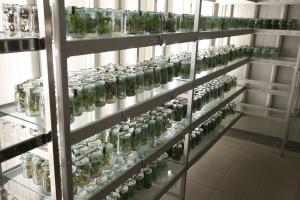
.png)
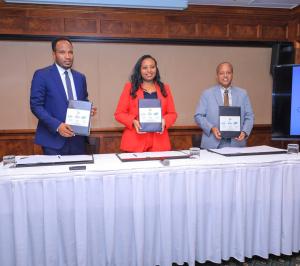
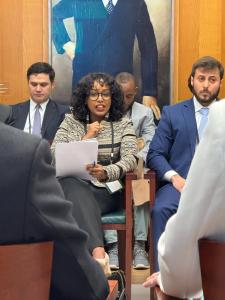
.png)
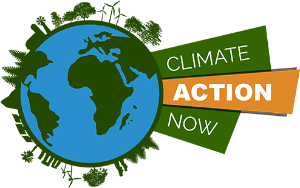
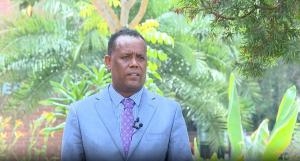

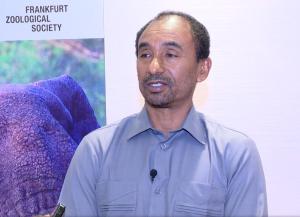

.jpg)
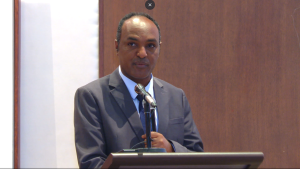

.jpg)
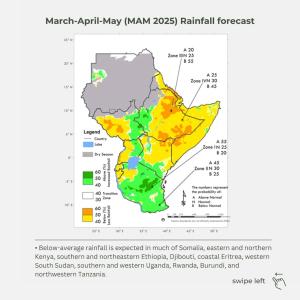
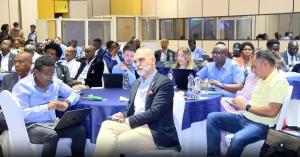
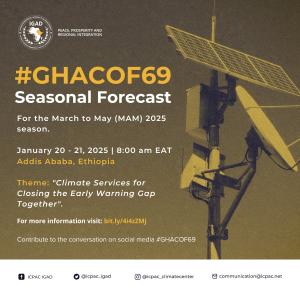
.jpg)
